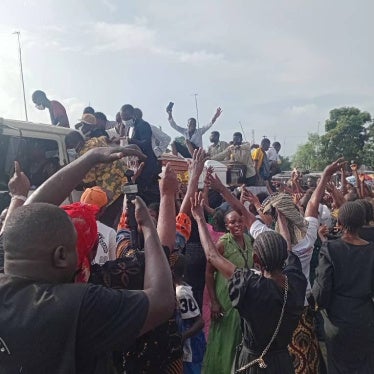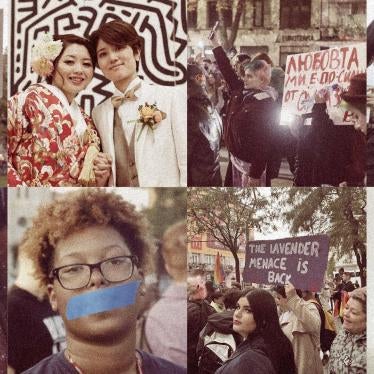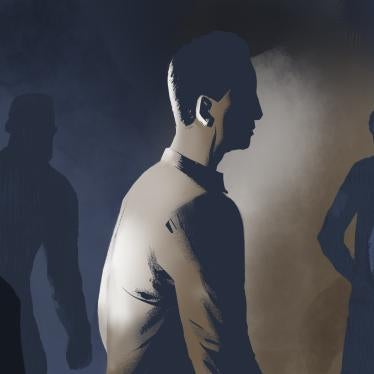President Teodoro Obiang Nguema Mbasogo loves to bring international events to Equatorial Guinea to distract attention from his government’s record of repression and corruption. So it’s no surprise the small, oil-rich country has yet again stepped up to host the 2015 Africa Cup of Nations (CAN) soccer tournament, which it also hosted three years ago.
The situation in the country is as bad – in some ways worse – as during the 2012 tournament. Anyone who looks past the shiny new construction near the stadiums will see that nearly half of the population lacks clean water and basic sanitation. Housing conditions, schools, and health care are poor.
Obiang still rules autocratically and after 35 years in power is the longest non-royal head of state in the world.
His government jails and tortures political opponents and those who threaten powerful interests, despite proclaiming that it issued a political amnesty in October.
There’s been no improvement on press freedom. Ahead of CAN 2012, the Obiang government detained, censored, and effectively expelled German journalists for straying beyond the subject of soccer. Fast forward to 2014, when the government intimidated and detained two Financial Times journalists and confiscated their notes and equipment.
Nor has there been progress on high-level corruption. Just last month Obiang’s eldest son reached a $30 million settlement with the US Justice Department over allegations of corruption and money-laundering on a grand scale. This son, known as Teodorin, is also the country’s second vice president and the presumed designated successor to his father.
While Equatorial Guinea’s tiny elite lives in luxury, everyone else lives in needless poverty. Economic mismanagement has made matters worse, with Equatorial Guinea’s economy now in recession. The billions in oil revenues that were stolen or spent unwisely represent a lost opportunity for development and a human rights tragedy.
Obiang may hope that the Africa Cup will boost his reputation. But if sports journalists and soccer fans venture beyond the stadiums, they will see evidence of ongoing human rights abuses that they can then broadcast to the world. If the authorities don’t detain them, that is, and confiscate their material.








